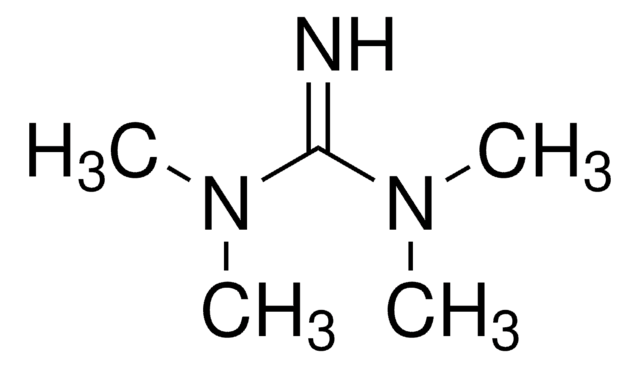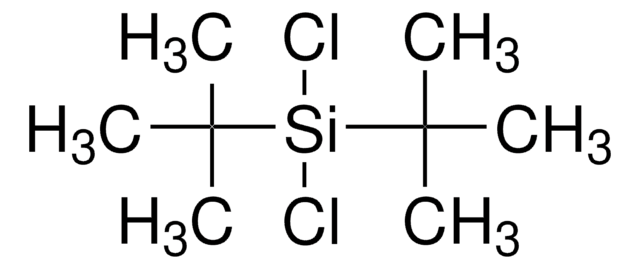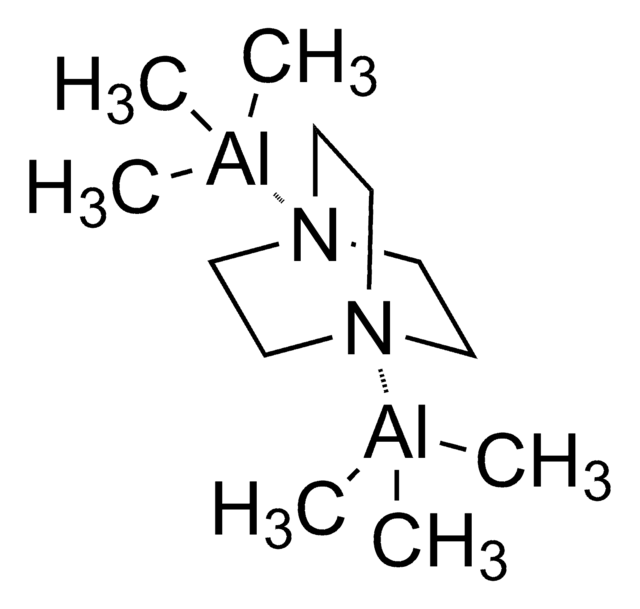290734
Dabco® 33-LV
Sinónimos:
1,4-Diazabicyclo[2.2.2]octane solution
About This Item
Productos recomendados
description
33 wt. % solution of triethylenediamine in dipropylene glycol
Quality Level
density
1.02 g/mL
SMILES string
C1CN2CCN1CC2
InChI
1S/C6H12N2/c1-2-8-5-3-7(1)4-6-8/h1-6H2
InChI key
IMNIMPAHZVJRPE-UHFFFAOYSA-N
¿Está buscando productos similares? Visita Guía de comparación de productos
General description
Dabco®33-LV (Db) is a gelling catalyst and a bidentate ligand that forms a self-assembled monolayer (SAM) on a variety of substrates. It functionalizes the surface and immobilizes the surface atoms.
Application
- As a gel catalyst to promote the gel reaction in the production of flexible and rigid polyurethane foams, microcellular foams, coatings, and elastomers. It is used to accelerate the isocyanate-polyol reaction.
- In the synthesis of anion exchange membranes (AEMs) via electrospinning, contributing to the crosslinking between the polymers and the mechanical stability of the membrane. AEMs are further used in fuel cells, water electrolysis, redox flow batteries, and electrolyzers.
- Db can be used in the preparation of epoxy based soybean oil for the formation of polyurethane foams.
Legal Information
signalword
Danger
hcodes
Hazard Classifications
Eye Dam. 1 - Skin Irrit. 2
Storage Class
10 - Combustible liquids
wgk_germany
WGK 1
flash_point_f
Not applicable
flash_point_c
Not applicable
ppe
Eyeshields, Faceshields, Gloves, type ABEK (EN14387) respirator filter
Elija entre una de las versiones más recientes:
¿Ya tiene este producto?
Encuentre la documentación para los productos que ha comprado recientemente en la Biblioteca de documentos.
Los clientes también vieron
Artículos
Based on the same working principle as the nontraceless Staudinger Ligation the auxiliary phosphine reagent can be cleaved from the product after the ligation is completed leaving a native amide bond. Thus, the total chemical synthesis of proteins and glycopeptides is enabled overcoming the limitations of native chemical ligation (NCL) of a Cys residue at the ligation juncture.
Nuestro equipo de científicos tiene experiencia en todas las áreas de investigación: Ciencias de la vida, Ciencia de los materiales, Síntesis química, Cromatografía, Analítica y muchas otras.
Póngase en contacto con el Servicio técnico![1,4-Diazabicyclo[2.2.2]octane ReagentPlus®, ≥99%](/deepweb/assets/sigmaaldrich/product/structures/366/129/a6ff4175-974d-4fac-9038-b35e508ef252/640/a6ff4175-974d-4fac-9038-b35e508ef252.png)
![1,8-Diazabiciclo[5.4.0]undec-7-eno 98%](/deepweb/assets/sigmaaldrich/product/structures/120/564/5b373e23-1624-489c-8efb-692de0f96ffb/640/5b373e23-1624-489c-8efb-692de0f96ffb.png)
![1,4-Diazabicyclo[2.2.2]octane for synthesis](/deepweb/assets/sigmaaldrich/product/images/488/587/f5a877b3-e573-4686-931f-648015f4d284/640/f5a877b3-e573-4686-931f-648015f4d284.jpg)

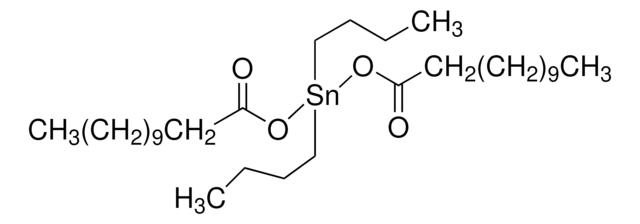
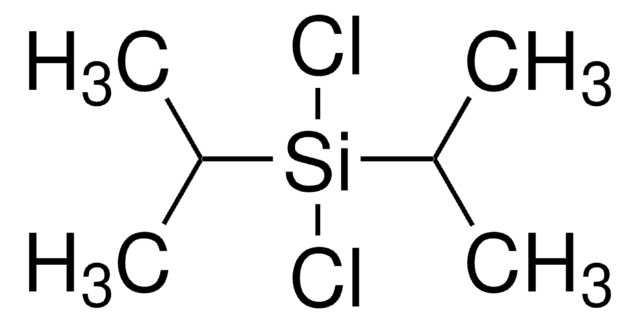
![1,5,7-Triazabicyclo[4.4.0]dec-5-ene 98%](/deepweb/assets/sigmaaldrich/product/structures/171/446/333d560c-cff6-4958-b489-5acfb3057cce/640/333d560c-cff6-4958-b489-5acfb3057cce.png)

